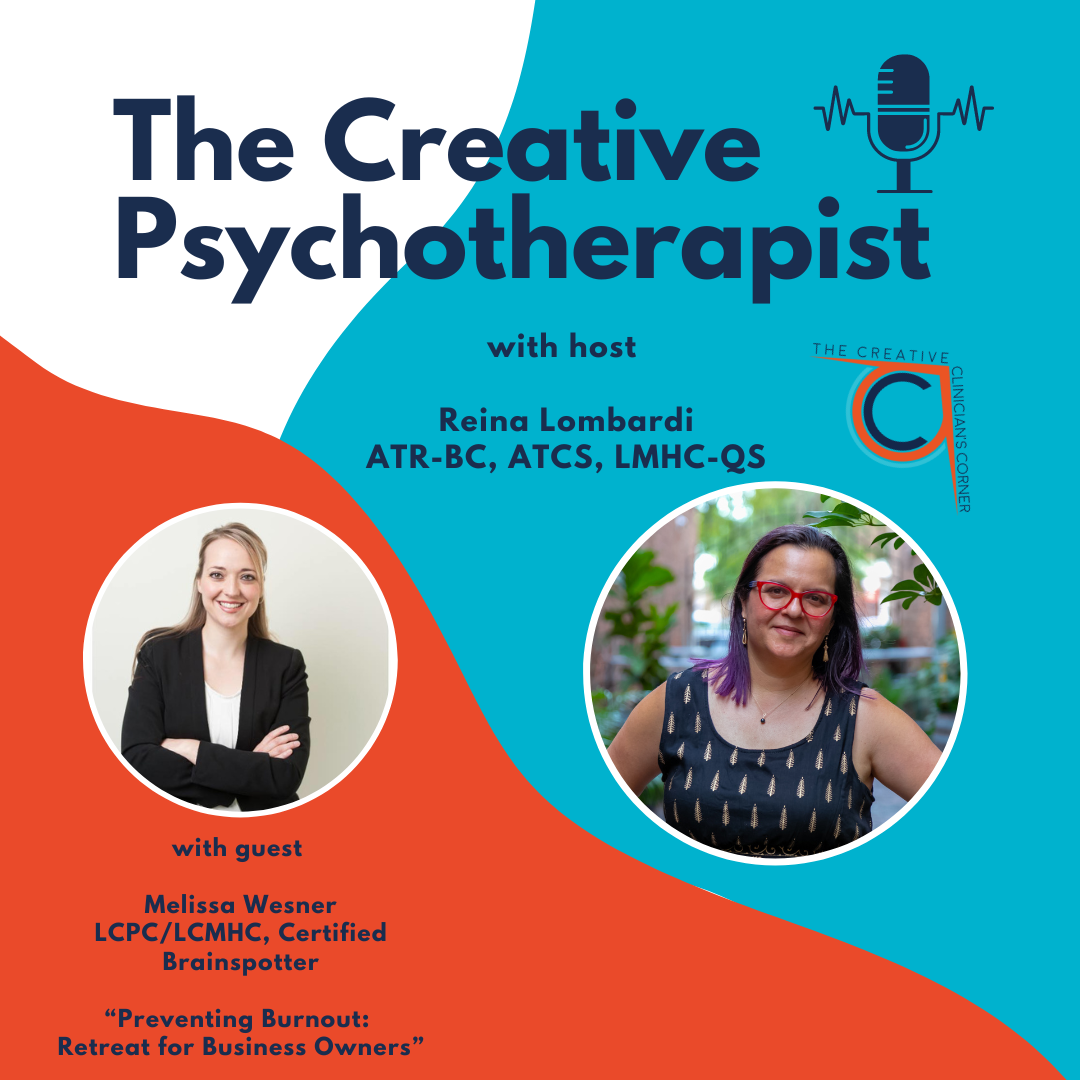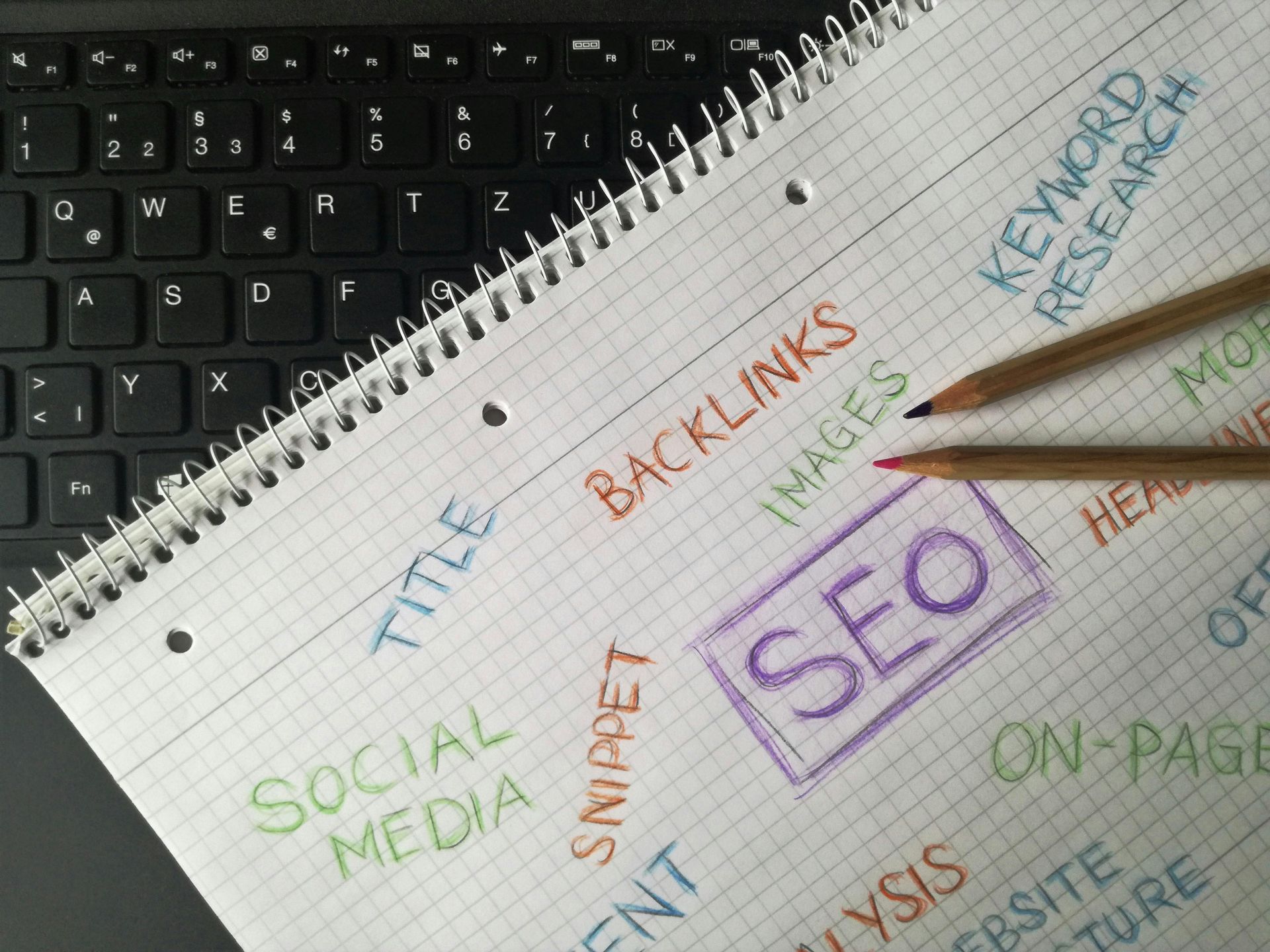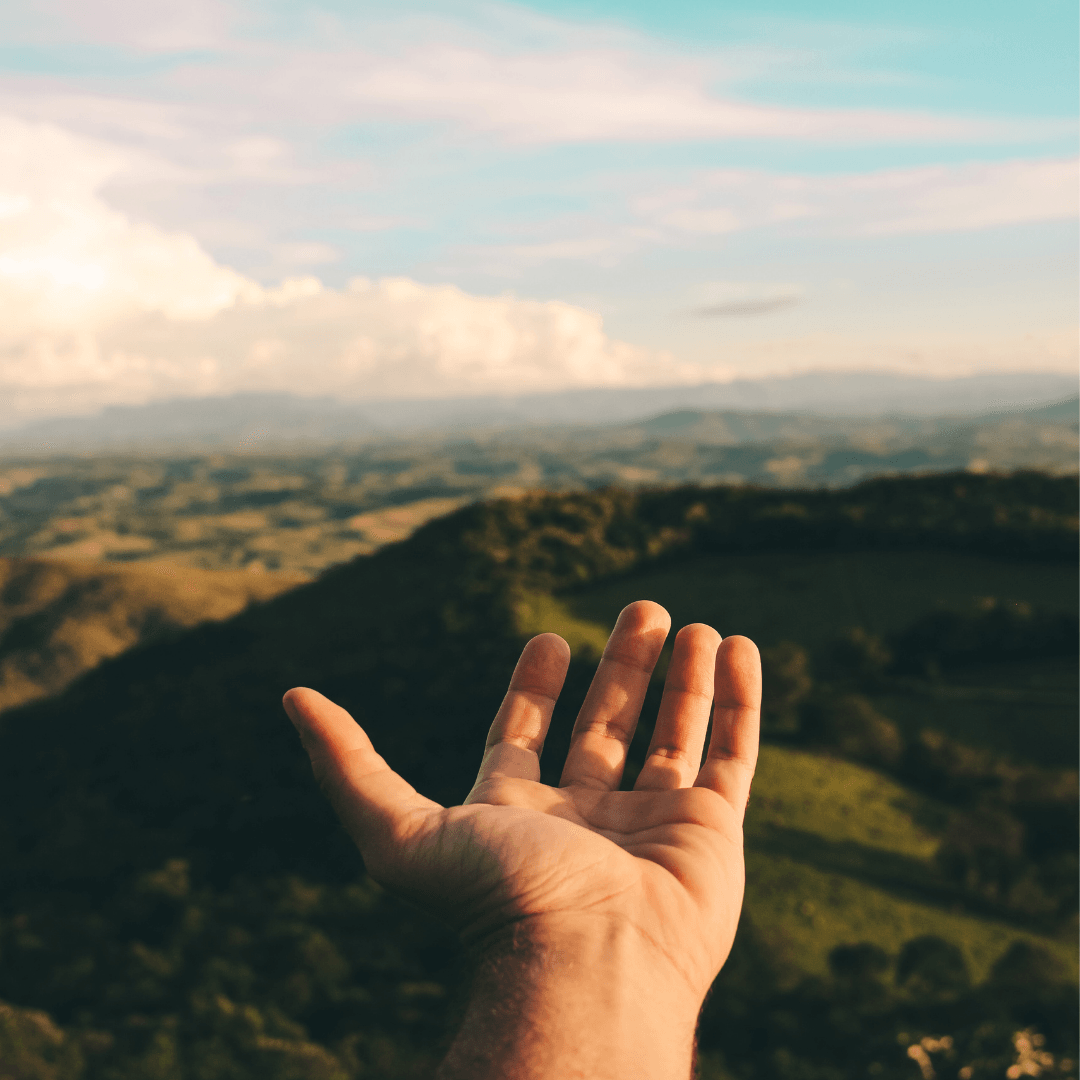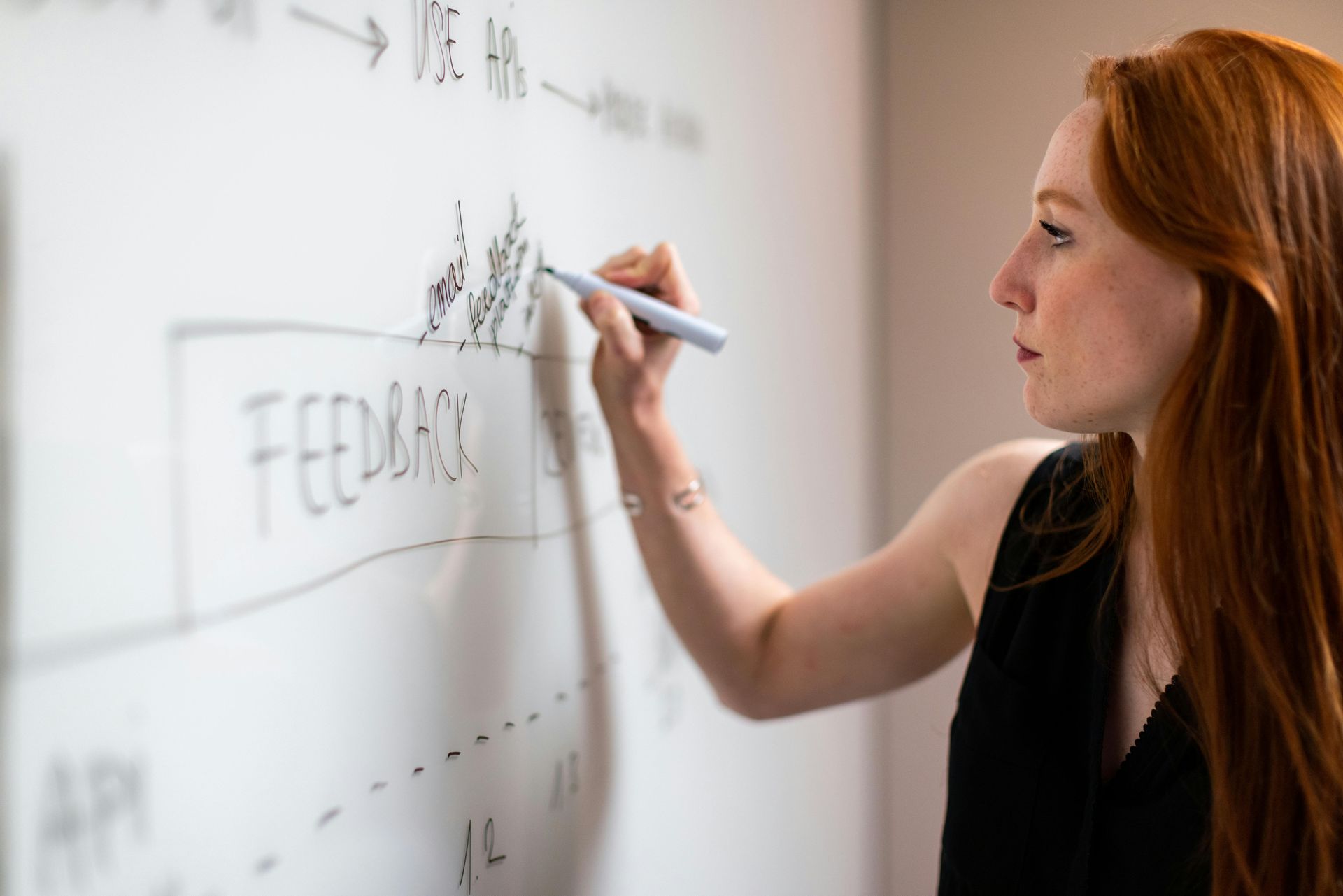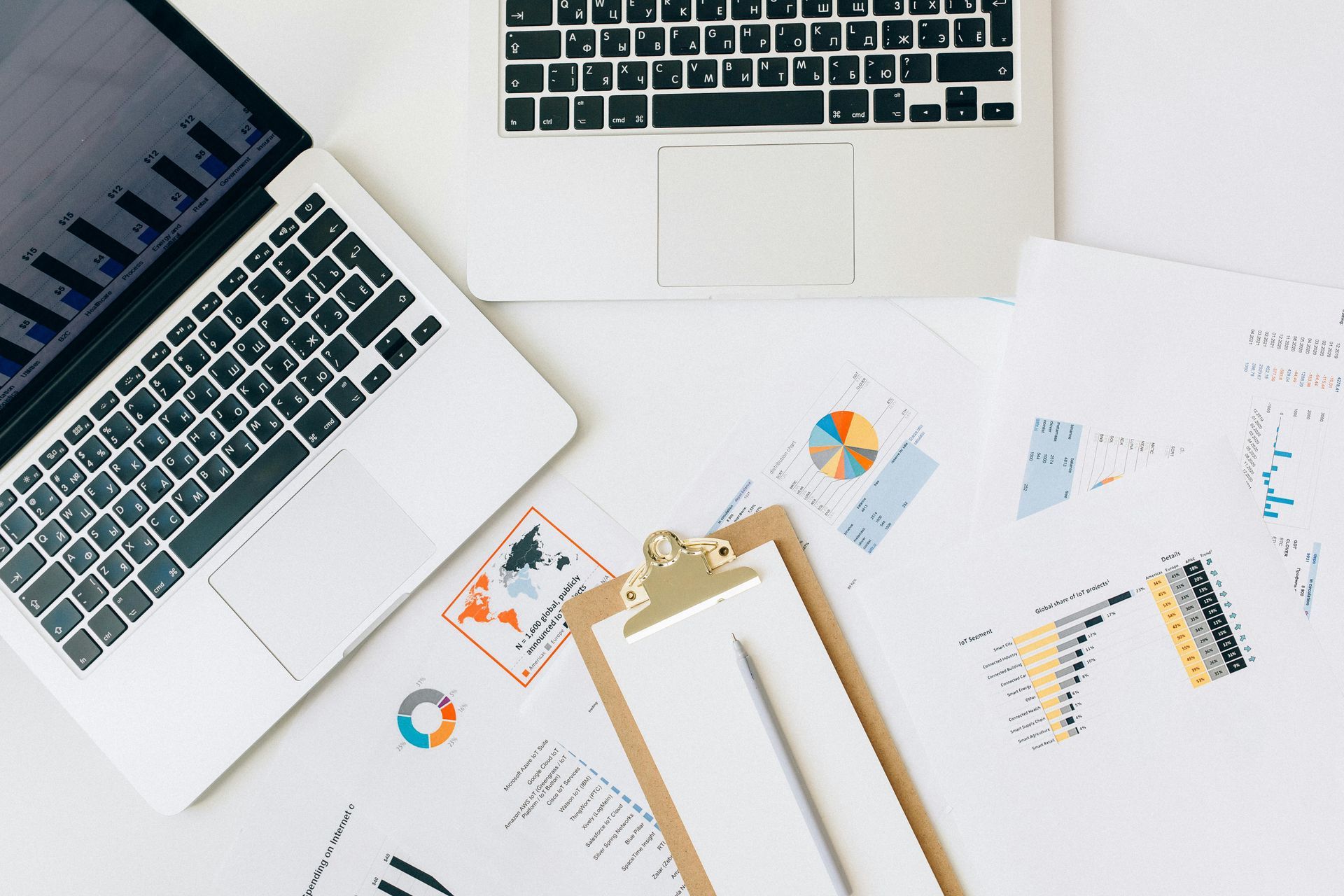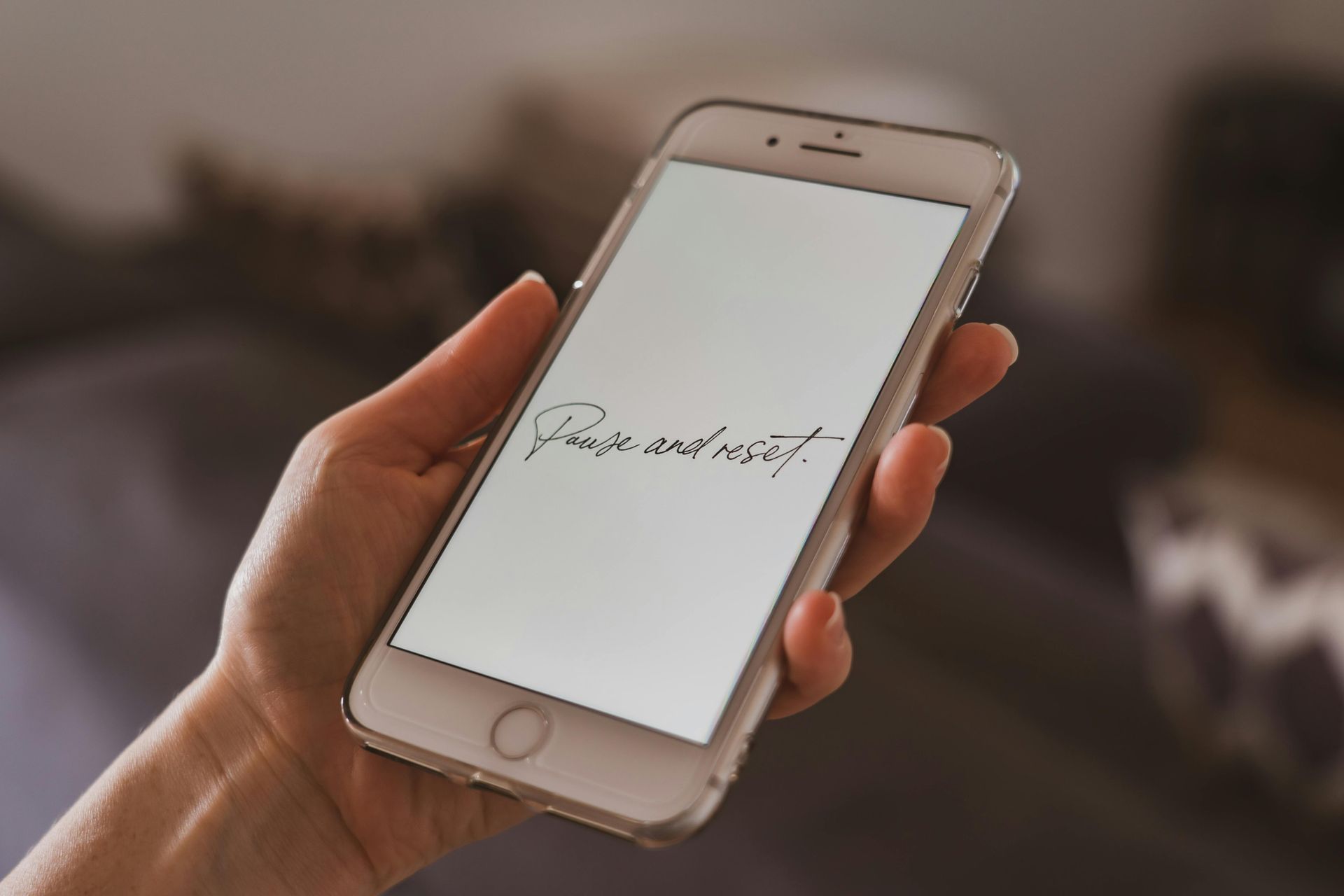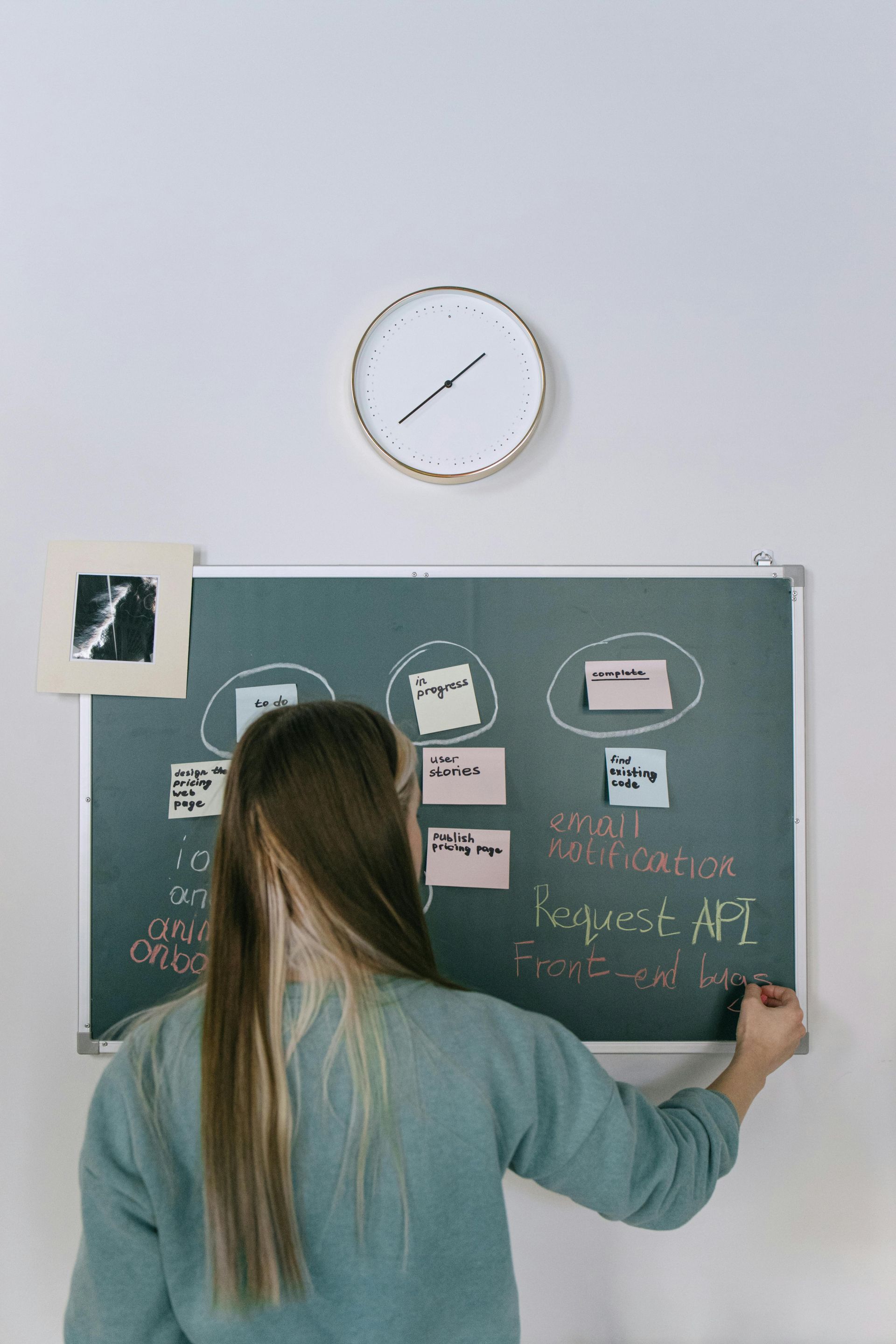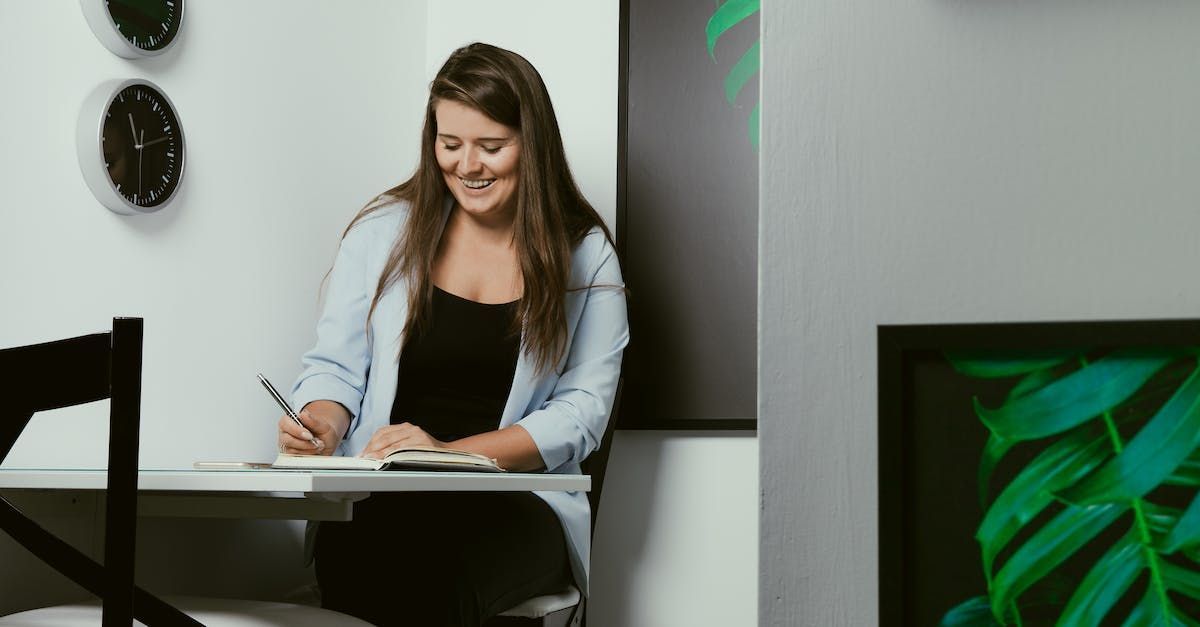Season 2 Episode 16 | Melissa Wesner| Preventing Burnout: Retreat for Business Owners
FEATURED GUESTS: Melissa Wesner is a type A, counseling nerd who likes to cross her t’s and dot her i’s. She’s often the person to rain on the parade by asking, “I wonder what kind of documentation we would need to do that” in the midst of a really exciting work conversation. She’s the person who thinks about risk management, liability, and documentation and who reads the books and signs up for ALL the trainings! As your Protecting Your Practice co-host, Melissa will be bringing all of this nerdy excitement to the table. Melissa is the Owner of LifeSpring Counseling Services, a group practice in Towson, MD, and of LifeSpring Counseling. As the owner of 2 thriving practices, Melissa has lots of practice management experience to bring to the table.
LISTEN & LEARN:
- Burnout rates for working professionals have increased drastically since COVID including small business owners.
- Benefits to attending a Retreat as both a self-care process and business development activity.
- Give yourself permission to retreat + recharge with other business owners in Costa Rica!
- How you might feel as a business owner who has gotten rest, eaten healthy, and checked back in with yourself about why you started this business in the first place.
RESOURCES MENTIONED ON THE SHOW:
- Early registration BONUS -Online Meetup After Retreat Sign up by 10/13 to receive BONUS
- Sign up for the 6-Day Retreat for Small Business Owners April 14th-19th, 2024 in Costa Rica Retreat
- Connect with Melissa at lifespringcounseling.net/ or protectingyourpractice.com
- Get a FREE Burnout Prevention Plan!
Read the transcript below...
Hey there creatives. I am excited to share this conversation that I had with guest Melissa
Wesner. She has been on the show a few times before, maybe twice before, but I meet with
Melissa about once a month and we talk about business development stuff and she's amazing.
I am always inspired by what she's doing, her generosity and the way she thinks about
business development, running her group practice and expanding her offerings outside of the
therapy room. And we're going to be talking a little bit about one of her latest offerings
on this show as well as the reason why she went ahead and developed it. And part of that
relates to the need for us as business owners to really refuel and replenish. And sometimes
it can feel difficult to make that time. Maybe it feels selfish or that maybe we feel
like we can't we can't justify going on a nice vacation for ourselves when there's
so much that needs to be done work wise. And so she's kind of mixing it up and has created
a business retreat, which will take place in Costa Rica in April of 2024.
And it sounds really lovely what she has in mind. I've been following her on her social media and she
just did a trip to the location and has a bunch of videos up of her experiences there and
kind of prepping for what's to come and it looks like it's a beautiful, beautiful retreat
community center and lots and lots of beautiful ways of engaging. And I don't know, it sounds
amazing to me and it's going to be part part, you know, for your person, for the person
of the therapist, the person of the business owner to really refuel replenish, relax, but
also an opportunity to connect with other business owners and to do a little bit of work
around business. And anyway, I hope you enjoyed this conversation. And if that sounds like
something you'd be interested in, definitely check it out.
Thanks for listening to the Creative Psychotherapist podcast. I'm your host, Raina Lombardi.
And I'm really excited to welcome Melissa Wesner back to the show. If you are a listener,
you've heard her on here twice first talking with her podcast co-host, Daniel Meyer. No mayor
pronounced it incorrectly. And they were talking about, you know, legal things related to practice
ownership. And then this spring she was on and we were talking about systems and group practice.
And today we're going to be talking about business owner stressors and burnout and prevention.
And, you know, the role of our own self-care and how to go about those things. And so a little bit
about Melissa, she's the founder of Life Spring Counseling Services, a Maryland based group practice
where she and her therapist strive to provide hope, healing and empowerment through the collaborative
process of counseling. And she's a certified brain spotter and brain spotting consultant
and an avid believer in the power of brain spotting. She's a dreamer, a doer and a co-host of the
protecting your practice podcast. And she is currently creating and will be hosting the ultimate
business refresh retreat in Costa Rica in 2024. Thanks so much for coming back, Melissa.
Thanks for having me, Reina. I'm looking forward to our conversation.
Me too. So let's kind of talk about like what inspired you to say I'm going to pivot a little bit
and I'm going to do a retreat for business owners. Yeah. I think over the past year I've just been
reflecting and thinking about how can I do things that allow me to have more fun in work.
You know, there are a lot of things that I was doing that I have a good routine for,
you know, but I think as an entrepreneur, you like to have your hands sometimes in a lot of
different hats while also, you know, not giving into shiny objects syndrome.
But I have been attending a number of retreats over the past year. So I've been on the receiving
end and I know how good it can feel to be attending a retreat. But I also know that I love hosting,
I love bringing people together. I love giving people experiences. And as I was attending this one
retreat, I was like, I would love to do this. Like I would love to just be offering retreats.
That would be so much fun. And having been in a position where I'm attending retreats that other
people are putting together and just knowing how good it can feel to have someone else organizing
that for you and kind of taking care of you. You know, I have both sides of that. I like the
planning and I like the process of providing people with connection, community and experiences.
But I also know how good it can feel to be on the receiving end. And so that's kind of what started
this is just wanting to pursue things that I really enjoy. And also have more time with other
business owners and being community with them. Yeah. So what do you think are some of the benefits
of attending a retreat as a business owner? Yeah. I mean, one of the nice things about attending a
retreat is that you don't have to plan anything. Like you book your flight, you mark your calendar,
and you show up and someone's going to take care of you. And you don't have to worry about your
food or your lodging and all of your things. Someone else is going to take care of you. And when
you're a business owner, I think you're so busy taking care of everybody else.
You might be taking care of your clients. You might be taking care of your employees. You might even be
in a role where you're taking care of your family. You're taking care of everybody else. And sometimes
if one person who's not getting your care is you. And so it's an opportunity, one for you to make an
active decision to say, I'm working my butt off. I'm going to take care of myself. Because if I don't
take care of myself, it's going to impact everything and everyone around me. And I'm worthy of being
cared for. So one, making that decision to care for yourself, but also putting yourself in a position
where someone else can take care of you for a little while. And you can just show up, just show up
and relax. I love that. I like when you were saying, you know, as a business owner, you're taking care
of so many people. I took a really deep breath because it is so true. You're responsible for so many
things that, you know, you're constantly having to shift things around like, okay, that popped up.
Now I have to adjust and take care of that. And that sometimes means that your needs are not
attended to, but they may be attended to later than what you had originally hoped. So having somebody
else do all of that planning, which for me, I love that. I don't, I love traveling, but I don't like
the research of figuring out where I'm going to stay, booking all those things, figuring out what
I'm going to do. I love when somebody else does that for me, and I just show up and just naturally go
to all these places wherever it is. I have a really good friend who loves the research and travel part.
And so I'm always like, Hey, are you going anywhere? Yeah.
I'll take a long because I know she's going to plan everything. And I don't have to think about it.
I just go, okay, well, here's my half of the money. And we go and have all these awesome experiences
that she's arranged for. And it is so nice to not have to like think about that and have that
experience. Yeah. And it's funny that you say that because we were just talking about this,
right? Like we were just talking about how I love, like I love the planning process for retreats
and doing that, right? But when I'm in that process, I'm doing it for other people, right? Like I'm
thinking I'm doing the planning and the research with other people in mind. I'm going to Costa Rican
next week to scope out the place where we're going. And I decided to extend my stay, but I don't even
have my own lodging for after my time at the retreat center, right?
And right now for me to look at my own lodging for myself does feel like a little bit of work. But it doesn't feel like that when I'm planning a retreat for other people, right? So kind of this idea about the things that we do for other
people in our roles that we might not be doing for ourselves or that might not feel the same way when
we're doing it for ourselves. Yeah, that's so true. That's so interesting too, right? Like the joy
that you get from doing it for everybody else, but then when it's time to do it for you, you're like,
oh, that feels like too much. Yeah. You know, and I saw this coach recently who posted on social media,
and I don't remember her exact language, but she said something like being a business owner is
accepting like this non-reciprocable relationship with maybe people who work with you or something
like that, right? Like you're giving, right? But you're, you know, it's our job to take care of the people
who work at our office. It's our job to take care of our clients. It's not their job to necessarily
worry about us or take care of us, right? And so if we're not taking care of ourselves, if we're not
doing that for ourselves, you know, who else is going to do that for us? Yeah, yeah.
No, it's so true. Recently, the state of floor, you know, our boards are always updating their legal codes and stuff,
and they updated the responsibilities for supervisors. So if you're supervising, you know,
somebody to get their license, part of your responsibility is to be, you know, monitoring your
supervise self-care. That's been a law. Yeah. So surprised that they added that. They added some
other stuff about self-lifters too. I thought, wow, that's, that's awesome that they've added that
that there's enough recognition that they're saying, no, we have to be doing a better job of this because
of I think that attrition in our field, a lot of people give up. They don't go all the way through
and decide, I'm going to leave. I'm going to do something else. This is really hard.
And part of it is that making that time to care for oneself. Yeah. And that's so interesting that they made it
part of the law to be monitoring that, right? I mean, we see it in our codes of ethics and stuff like
that. And really in some ways, it's almost like taking self-care is almost part of our job description.
I don't know that it ever gets integrated into like our actual weekly duties, right? You know,
in terms of our job, but it is almost something that said, like, this is your job and this role,
it's your job to do this. Yeah. So what are you seeing in terms of how people are impacted as business
owners when maybe they're not doing such a good job taking care of themselves or they're getting
overwhelmed and like not setting aside that slow down time. I know for me, setting aside slow down
time periodically is really important, even if I'm not doing much, but just whatever I'm doing is fine.
Like that, I need to have that break that space. Yeah. And I think that space is part of it,
right? Like again, you know, in the mental health space, we're always talking with people about like
what self-care is and that self-care isn't always really fancy. It doesn't mean you have to go get
your nails or your hair done or a bubble bath. It might not look like that, but sometimes it is just
making sure that you have some free time on your calendar, some free time for your mind to decompress
because especially if you're in a creative role and you need to generate ideas, you can't be creative.
If all of your creative juices have been depleted, if there's no time to be imaginative, if there's
no space to dream, if there's no space for your brain to just be free to roam. And so I think that
that sometimes we're not feeling inspired because we don't have that time. We're kind of feeling
like I don't have any ideas. That's a thing I think that can happen, but I think a lot of what I'm
seeing, at least in counseling spaces or in our field, is a lot of people talking about being burned
out, feeling burned out. I think we have a lot of conversations about like key slowed size and we
often attribute our burnout to our key slowed size, where maybe even due to the content that we're
exposed to. And the thing that I think is important for us to think about is that those things have
been around since before the pandemic. And I think that right now is a time where I'm seeing so many
people talk about burnout. And I wasn't seeing so many people talking about this before the pandemic,
but we've always been exposed to difficult content. We've always had certain metrics maybe to
meet with a key slowed. That's not new, but I think all of the reports about burnout are new.
And so that raises some questions about what is going on. And I wonder how has the pandemic impacted us?
Is there an impact from the pandemic that we're not yet aware of or we're not aware of how much
has impacted us? I was mentioning earlier that I've been reading some stuff. Gallup has come out with
a book called Wellbeing Outwork. And they've a great website. And they have been sharing some of the
research that they've been finding. And one of the things that I found really interesting is that
one study found that when they looked at people who were working remotely or hybrid or in person
during the pandemic, that the people who reported the highest rates of burnout were people who were
remote workers. And that really has been probably the majority of people working in the mental health
field. So many of us have worked remotely during that time.
And there might be different factors that influence to someone like working from home. Do they not like working from home? But I questioned, you know, how has remote work impacted us? We are more isolated now. We and a lot of people have been talking about I feel so isolated because they're not working in person anymore. And if you're in
private practice for yourself, you don't have colleagues necessarily, even on your team that you can talk to.
So those are some things that I'm really seeing come up. And also, you know, I think during the
pandemic, we had to be in go mode. And I think sometimes when there's a crisis or something happening,
we go into go mode. And our body will perform for us. Our body will do what it needs to do to get us
through something. And so I also wonder, is there like a delay where our bodies are like,
oh, the crisis is over. Just kind of like your body gets you through a crisis or gets you through
a stressful moment. But then after it's over, you crash and you get sick.
Yeah. Right. And so I don't know the answers to these things. But what I as to why reports about burnout are so prevalent right now in our field. But what I do know is that, you know, there's some new studies coming out that might
give us some information and to know that maybe the pandemic has impacted us more than we know.
I would imagine that it has for sure, because there were so many drastic changes that were out
of people's control. And in that regard, I mean, I think a lot of people experience some traumatic
symptoms as a result of everything that happened with the pandemic, right? There's I have no control
of whether I can go out and be in public when I go out and when I'm out in public, I have to, you know,
wear all of this, you know, protective year, which I've never had to do before, which feels
uncomfortable because it's new and we're not used to it. Even though the medical folks have been
masking up and covering up and like crazy, like, you know, precautions suits and stuff for years,
right? Yeah. But for the lay public, it feels uncomfortable because it's not something we've had
to have on our skin and and it wasn't a choice that we had. Yeah, working remotely might not have
been a choice, right? Maybe not someone who would have chosen telehealth.
Maybe I'm not someone who identifies as being good with technology. And during the pandemic, this was an experience where we were processing these things with our clients while simultaneously going through them for ourselves, navigating children being at home and helping them with their schoolwork and navigating technology,
work life boundary in terms of your actual physical space. So so many things that were there and many
of us are still working remotely, not working in person, right? So in some ways, the pandemic has
completely changed the landscape of how we do our work. And so now it's about if I'm feeling isolated,
well, how do I find community and connection? That book that I had mentioned also talks about the
benefits of in-person gatherings, whether it's planning them for your employees or new employees
who are coming on board and how that builds trust. But also if we've still been working remotely
from the pandemic, what are we doing to be intentional about having in-person time with people,
whether there are colleagues, whether they are friends and family? How are we making sure that we
are getting that in-person time for our mental health as well? Yeah, that's so true.
I feel I feel really fortunate in that like even though I do a lot of telehealth, I've consistently been in-person
throughout the pandemic because part of what I do is I have a contract at the local mental health
hospital and I go in and deliver services in the crisis unit there. And so I've been doing groups
at different facilities the entire time, you know, with precautions. But so I never fully
was only operating in my home. And I think that was really important for my own sanity because
just one week of doing all telehealth from home, I was like, this is so tiring. I don't understand why
I'm so tired. I'm seeing less people than I normally would in a day when I would be in-person,
but I feel twice as fatigued. And I think it was just again like accommodating to be present
through the screen, which is a different skill set. Yeah. And I'm going to be curious how this
continues to play out because one of the things that I've been seeing, you know, from some of the
information on the Gallif website and also just online, like on LinkedIn, as people are like sharing
information there is talk about how so many people are now wanting remote positions.
That lots of people in the workforce want remote positions and that some companies are reducing.
During the time that people want to work remotely, some companies are reducing their remote options
and maybe it's more hybrid or maybe some companies are going back to requiring in-person.
But I'll just be curious to see how that goes. I think there may be a perception that remote work
is really great. And I would love to work remotely. But I think that there's a percentage of those
individuals who will find out that maybe once I embody the reality of being remote, that maybe it
won't be as exciting as I think it is right in terms of my energy or in terms of that work life
distinction. Yeah. I think it really is dependent on the individual and their style.
I know one of the therapists that works with me, she also works for another company full-time,
which is all totally telehealth. It's a total telehealth provider. And during the pandemic,
she invested in her own VPN and did a bunch of things to be technologically sound. And she and her
husband traveled. So we have two spring training stadiums here. And she got an offer for the red
socks to rent her house. And they're like for spring training. And they're like, if we do that,
we can travel, work remotely while they are renting our house. It's a win-win. And she just, she
was like, this was the best experience, work experience ever. Because yeah, she was still able to do what
she did with clients, but then have this really meaningful experience with her husband.
And I was like, yeah, that's awesome. I'm so glad that that worked out for you in the way that it did, right,
where other folks, it might be a completely different scenario where it's like, okay, there's
kids at home and it's challenging to work and have family and not have the disruptions. And it's
just hard. Yeah. And even for myself, I'm someone who would probably say that I love working from home.
And you know, really enjoy that. But there are times where I'm like, hmm, I wonder how this has
truly impacted you or will impact you, right? Sometimes, so I don't leave the house too often,
which makes me sound like a little bit of a hermit right now. But to don't go out too much,
because I work from home. And I'm happy to be at home. But every now and then when I leave,
I'm like, oh, like the world is a nice place. It's nice out here. And so sometimes, even for myself,
even though I'm someone who identifies as enjoying working from home, I'm like, you know, how has this
influenced you? How has this impacted you? Yeah. It's easy to just stay in.
I know it's easy for me to, even though I love being with people and I'm, I think, very social. But it's no problem. I'll stay at home and find things to do. Yeah. And go, oh, wow, I haven't left the house in four days. So,
how that happened? Yeah. And so, you know, at least locally, one of the things that I have done
based on one, the fact that I live hosting and just hearing people say, I want connection, right? And,
you know, you go to a networking event and like, you meet someone, you have your little spiel,
high emalissa, I work here. This is what I do. Did it and you do the like business card swap. And then
you may never talk to that person again, because you didn't really get to know who they are.
So, locally, you know, we started organizing a clinician community membership where for local clinicians,
who want to sign up, I now arranged like fun activities for us to do every month. And we, you know,
at least the first time that we did this, our day one activity had a rule that we're not going to
talk about what we do for work. That we're going to get to know one another as humans first. And so,
now this is the second time that we're doing this, but we get together on a monthly basis just so
we can have fun and get to know one another, but even in terms of community referrals and stuff like
that, you know, if you know someone for a year, because you've hung out with them once every month,
maybe more, just feels a little bit more of a more organic. You have a connection.
You know, who this person really is. And so, at least for myself as well, right? Like we're a community, but also
for myself, it's an opportunity to say, okay, like let's get some people time in. Let's do something fun.
And we're doing things activities that I enjoy as well. And their activities that probably, like,
my partner's not interested in doing like candle making maybe wouldn't be what he would pick. So,
that's awesome. Yeah, no, my husband would not be down for candle making. Yeah. So, get some in in person time,
doing fun activities, you know, and so now with the retreat, it'll be another opportunity for people
to get together and have and have some community. And in person time, the in person time, that
connection. And I agree with what you're saying about getting to know people, if you feel so much
better than knowing of someone. Well, I've met them.
I know that they do this, but I don't really know much about them. And yeah, I think that too kind of turns people off. And at least when I've been mentoring other folks that are trying to build their practices, like one of the things that feels really intimidating is that networking piece. Yeah. But I think it's like that's how we look at it.
Like I'm going to go to some kind of like mixer and everybody's like, who's going to get the most
cards, but you never really form a connection. I'm like, if I'm in a big crowd, I'm going to migrate to
like one or two people and talk with them for a long time. I don't really take, I feel like it's so
much energy to manage the whole crowd. But a small intimate group like that where there's, you know,
10, 12 people and you're all doing some kind of fun activity together. It kind of, I feel like
takes maybe some of the anxiety out of the picture of networking too. Yeah. Yeah. And just a chance
to have some fun, get to know someone's actual personality, right? If you know someone's personality,
you have a sense of how they're going to show up in the room with a client and to be able to say,
like, I think you'd really get along with this person, right? Like they're really funny.
They have a great sense of humor. I just think that the two of you would really connect. And so it
just adds a different dimension, I think. I love that. So what are some of the things that you're
going to be bringing to the retreat experience for business owners to kind of help them
be more effective in running their business and also manage the stress so that they aren't
finding themselves burning out. Yeah. There's so many things going through my mind right now.
So a few things. So this retreat is going to be open to small business owners in all industries.
And someone recently asked me, well, what made you decide to open it up to all small business owners?
And one of the reasons for that is that I've been spending a lot of time over the past two years in
circles, like coaching or just educational programs for small business owners in different industries.
And I found that there's a lot of value in being around small business owners who are in other fields.
I think in the counseling or mental health field, a lot of times, like, you know, we've all received
similar training. And so we start to share a lot of the same information. It just starts getting
circulated in our community. And I've just found that being around other small business owners,
there's just a freshness in a different way of thinking about things, different ideas that
they've been exposed to as part of their training. So one, we're going to have opportunities to learn
from one another while we're on the trip. But there will be a cross-pollination of ideas because we're
working with people from other industries who have different ideas, different approaches.
So that's one thing on the business end. But one of the things that I'm excited about is the experiential component,
you know, especially as mental health providers, like if we know the things that we need to do to be well,
like sleep, nutrition, hydration, movement, you know, free time, like we know those things in our
head. We just don't always put them into practice. And so I'm really excited to be able to give people
an opportunity where they can have experiences where they're getting out of quick sleep. We're going
to have gourmet vegan meals on this trip. Like where they're eating really healthfully. And even the
smoothie bar contains like mock tails, right? So like it's an alcohol-free venue. We'll have mock
tails. We'll have gourmet vegan food. You know, but for people to see like in just a few days,
how does my body feel when it's rested with sleep, with eating healthfully, with moving my body in
ways that I'm going to enjoy on the trip? How does that actually feel? And what is that doing for my
creativity and my inspiration and my ability to maybe think differently about my business while I'm here?
So that's part of it experientially. But I think also just giving people an opportunity to say,
you know, what were my intentions for going into my business? Maybe it was money, maybe it was free time,
maybe it was to have more time with family and to say, you know what, let's check in. What was that
intention? How are we doing? Are we achieving that goal? And if not, then how do we need to maybe
readjust? And also how do we make our businesses sustainable? Right? Like how do we, it's really,
if you're a business owner, you can work all the time. There's always something to do.
Right? But like if we work all the time, right? Like it's never ending. Yes, you have to be, you have to adjust your
mindset if you're somebody that needs to check that box off that it was done. Being a small business
owner is going to be stressful because yes, those boxes are never going to be all checked off.
Right. And so, you know, we have to find a way to make our work sustainable. And one of the things
that personally I've been thinking about is, you know, how hard I've worked over the years, but also
like like I need to make time for myself, whether that's like right now, I'm really trying to prioritize
exercise, which you've heard me complain about before, but I'm really trying to prioritize
exercise right now and just say, I'm going to do it first thing in the morning,
because I want to give myself the best of myself when my battery is fully charged, rather than
having only fumes in the tank at the end of the day. And then I don't do it maybe or maybe even if I do,
I have like no energy. So I think really working on how do we make this, how do we make our businesses
sustainable? How do we, these wellness practices that we talk about on the retreat?
How do we make sure that we follow through? How do we make sure that we look at that? What are some things that we're doing that we can take off of our plate also? But in terms of specific activities, we will be doing a
really cool blue clay experience. There's like some blue clay by a waterfall. So we're going to get to
experience the blue clay. That sounds awesome. Yeah. So that's going to be really fun. And I think I'm
doing that next week. So I get to try it out. I hope you take pictures. I want to see. Yes, everyone's
going to be so sick of my pictures, but I will have them. So that's happening. We're going to be
doing yoga because I feel like if you're going to have a retreat, you kind of need yoga. I think it's
almost like a prerequisite. So yoga is happening. I'm pretty sure we have some hikes happening.
There's a mandala on the beach experience as well. And I think we're going to do some drumming. I think
I have that listed as one of our activities that we're going to be doing. So we're going to be doing
things to help us relax in between the workshops that we'll be doing. So those are some of the
activities that we'll be doing. That sounds awesome. And I know that the retreat center that you picked
out is really special. Can you share a little bit about the lodging accommodations of if people
are interested in going, which it really sounds like a beautiful experience that you're
putting together what would the accommodations be at this facility?
Yeah. So the accommodations are really cool. And I took a big leap in renting out the entire venue. So we will have the entire venue to ourselves. We'll have a private jet for ourselves that'll be taking us there. And we have
options for single occupancy lodging, double occupancy lodging. We have domes or like so the
like those clear domes that you see online. I've never stayed in one, but maybe next week and I'll
see them. But you can stay in a dome. You can stay in a bungalow. I mean, they have all sorts of
options that are just really cool. Some of them have pools outside of them. And so the lodging will be
really cool. And I've never been on a private jet before. So that'll be a new experience for me as well.
So the private jet experience is that like people fly into like the main airport in Costa Rica and
then the private jet takes you to the facility or like. Yeah. Oh. Yep. So we have our own private jet.
It's just us because we took the whole venue. So we have our own private jet that we're going to be on.
We'll have the whole facility to ourselves. There will be nobody else there, but the people who run
the retreat center. That's awesome. And so when are the dates? When is this happening?
Yes. So it's going to be April 2024. I have to go look at the dates. I don't want to give you the
wrong one. So April 14th through 19th, 2024. And right now we have our early registration set to
September 1st. It's coming up soon. Potentially, potentially that's going to be extended since I'm
only going to the retreat center next week. But we do have an added bonus for people who sign up early,
which will be that you'll get to do a post retreat call because after you go to a retreat,
like you want to see the people that you've been on a retreat with, right?
Like if you've never been on a retreat, I think the thing to know about retreats is that it just facilitates closer relationships faster, I think, because you're around people for X number of days in close quarters. So it just
really facilitates close relationships when you're on a retreat. And you want to be in touch with
those people. So we're setting up like a post retreat call so everyone can connect and so we can see
how everyone is doing with implementing the content when they go back home. I love that. Yeah, that sounds
really important and something that maybe doesn't happen, right? You're like, okay, now what, now what,
now how am I going to stay connected with these people that I just really had this amazing experience with?
Yeah, yeah. And I think, you know, just thinking about that. So I've led two different workshops to
Mexico, four mental providers in particular. We did a continuing education program. I'm still in touch
with all of those people who have gone on these trips with me. Two of them work at my office now.
Two of them are in the clinician community membership that I'm running. I just had lunch with the
other one the other day. And so there's just something about being on a retreat with other people.
That just facilitates the building of relationships. I was in another retreat this past year that
someone else was hosting. And on the last day, there was someone crying like they were like, I just,
I just don't want to go back home. I feel so isolated and it felt so good to be here. And
and I've been on retreats too. Like tears happen, right? Like stuff comes up when you're on a retreat.
I've been the one with tears at the retreat. You know, there's just something about it to be
supported and to just have a space where your stuff can come up and where you can be with other people.
I love that. And I do hope that if you extend the early bird special,
that you let me know because we're recording and it's the 25th of August right now. And I know
it's not going to be out by the first. It's probably going to be out like the second or third week
in September. Yeah. So let me know. Yeah. I feel pretty confident. We're going to extend it just because
I'll have more information to share with people after being there.
So I feel pretty confident that what we're going to extend it. It sounds really exciting and a wonderful,
a wonderful way to take care of oneself while also, you know, taking care of one's business. Yeah.
You know, because so oftentimes we it's we prioritize taking care of the business over
over ourselves. Yeah. And understanding like we we are the business in some ways, right? Like if we
are not taking care of ourselves, our employees are going to feel it, our clients will feel it. And if
we're bringing a certain energy to the business, it will directly impact the business.
And so one of the things that I've been thinking about is we think about our business strategy,
which our strategy, whether it's like marketing or outreach, whatever that is. But we don't often
talk about business about our business strategy, including our wellness. And I think our wellness
needs to be considered an important element of our business strategy. And there's tons of research
out there to show ways that, you know, even things like movement can help us facilitate creativity,
which we need is entrepreneurs. And yet we don't often think about the importance of our wellness
in our business strategy. Yeah. No, that's so true. But it really does need to be part of it.
It really does, right? We're building a business to work for us, not for us to work for it.
Yeah. If we're adding that wellness component and then we're really staying connected to that.
Yeah, which again, I think is a thing that can come up for people, even as they're deciding,
do I sign up for this retreat? Do I not? Right? And am I working for my business? Where is my
business working for me? How many business owners are like, I can't take a step back. I can't
get away for a weekend. I can't get away for a week. I can't do that. Right? Is my business
working for me? Or am I working for my business? I think a lot of people, it's the latter. Right? Yeah.
I know I just had COVID earlier this month. And I was like, all right, well, I'm canceling pretty much
the whole week. All right, I didn't intend on it, but there it is. But I didn't have to worry about it.
I didn't have to worry about the finances of that because of the way I've structured
the accounting piece. Right? Yeah. And as I'm thinking about this, right?
The podcast episode that you did with me and Dan on the Protecting Your Practice podcast, when we were talking about grief, that was one of the things that we talked about, right? Is that the strategy that you have used?
And have had to use or develop as a result of life circumstances, but also sometimes forward
thinking that you've developed to make sure that you have that ability as a business owner.
Yeah. And I think that is like that. How do I prioritize my wellness? What am I going to need?
I know that I need time. I know that I need big chunks of time throughout the year. Like the idea of
one week a year, 10 days a year, who would that concept? Yeah. Terrible. Terrible. I think we have to
adopt that more like European mindset around work. Yeah. That would be lovely. I've been seeing lots of
like reels on that lately. So that's been on my mind. Well, for folks that are interested in
participating in this retreat with you in Costa Rica, where can they find more information?
Yes. So I can send you the links. So you can put it in the show notes because the link is really long.
But if you don't want to look at the show notes, you can go to lifespringcounseling.net and then
under our services tab at the top, people can find that retreat. But the easiest way will be to go to
to the show notes and take a look there. So they'll be able to get all the information. I'm available
if they have questions, Melissa at lifespringcounseling.net. And it's not up there yet. But we by the time
this airs, we will have an opt in. We've developed like a little burnout prevention plan specifically for
small business owners. And so when you go on the website, you'll be able to check that out as well.
That sounds awesome. Thank you so much, Melissa. It's been so fun to talk to you. I love talking to you
anyway. Yes. Well, I'm so glad to see you and I'm so glad that we were able to catch up today.
Yes. And I'm excited to share this with listeners. And I hope that you fill up the whole center.
Yes. That's gonna be awesome. Thank you so much.
Thanks so much for listening to this episode of the Creative Psychotherapist podcast. I hope you
enjoyed this conversation with Melissa. As I said in the intro, I really adore her and everything that
she does. And I'm grateful for our friendship and just being able to learn from her
has been a real treat. One of the things I really admire is that
part of her entrepreneurial spirit is creating.
She's always coming up with new ideas and iterations and things to do. But at the same time, she's also willing to let go and cut chords of creations that she's developed that she doesn't feel connected to anymore. And if you're interested in learning about business development from other accomplished entrepreneurs, some, which may be therapists, and some which may not, you might want to give this retreat a look into. And you can find more
information about that on her website, lifespringcounseling.net. Anyway, I will talk with you next week
with my guest Julia Varing. And I think you'll be really excited to hear about her work
using expressive arts therapies with the aging population and that conversation's really inspiring too.
If you like what you hear, please rate, review and subscribe to our show so that other people
might find it as well and benefit from listening. Thanks so much everyone.
Thanks for listening to this episode of the Creative Psychotherapist. If you like what you heard,
please rate, review and subscribe wherever you listen to your favorite podcasts. For show notes,
downloads and additional resources head over to the website at www.creativecliniciansquinter.com.

